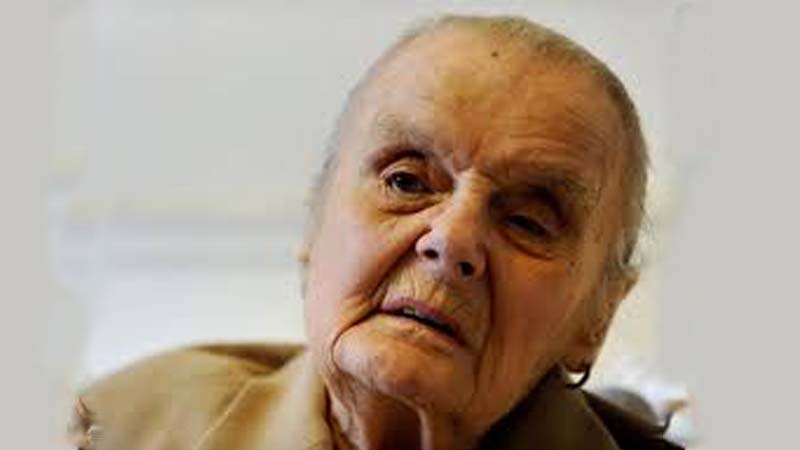The British Newspaper reporter who broke the news of World War ll, Clare Hollingworth has died at the age of 105 years.
Hollingworth, who was 27 when she broke the news, was born October 10, 1911, to a middle-class family in the village of Knighton in Leicestershire, England.
According to a report on BBC, her father ran a boot factory founded by her grandfather. She took brief courses in Croatian at Zagreb University, international relations in Switzerland and Slavonic studies in London. She worked as a secretary and then at a British newspaper’s refugee charity in Poland while writing occasional articles about the looming war in Europe. Friends influenced her decision to focus on journalism rather than politics.
The Daily Telegraph’s editor gave her a job as a stringer and sent her to Poland, partly because of her work with refugees in that country, according to her great-nephew Patrick Garrett.
During her five months with the charity, Hollingworth played an important role in helping an estimated 3,000 refugees trying to escape the Nazis flee to Britain by arranging visas for them, a little known fact that Garrett unearthed in research for his 2016 biography of his great-aunt, “Of Fortunes and War.”
Though she carved out a career in what was then a male-dominated field, Garrett said she looked back on her achievements matter-of-factly. “She would never regard herself as a feminist,” said Garrett. Hollingworth hated when women were given special treatment because it made women a “hassle,” which made it harder for other female journalists trying to cover wars, Garrett said.
“She thought that everyone should be treated the same. She hated it when women wasted time on makeup or getting their hair done,” Garrett said.
The British Newspaper reporter who broke the news of World War ll, Clare Hollingworth has died at the age of 105 years.
Hollingworth, who was 27 when she broke the news, was born October 10, 1911, to a middle-class family in the village of Knighton in Leicestershire, England.
According to a report on BBC, her father ran a boot factory founded by her grandfather. She took brief courses in Croatian at Zagreb University, international relations in Switzerland and Slavonic studies in London. She worked as a secretary and then at a British newspaper’s refugee charity in Poland while writing occasional articles about the looming war in Europe. Friends influenced her decision to focus on journalism rather than politics.
The Daily Telegraph’s editor gave her a job as a stringer and sent her to Poland, partly because of her work with refugees in that country, according to her great-nephew Patrick Garrett.
During her five months with the charity, Hollingworth played an important role in helping an estimated 3,000 refugees trying to escape the Nazis flee to Britain by arranging visas for them, a little known fact that Garrett unearthed in research for his 2016 biography of his great-aunt, “Of Fortunes and War.”
Though she carved out a career in what was then a male-dominated field, Garrett said she looked back on her achievements matter-of-factly. “She would never regard herself as a feminist,” said Garrett. Hollingworth hated when women were given special treatment because it made women a “hassle,” which made it harder for other female journalists trying to cover wars, Garrett said.
“She thought that everyone should be treated the same. She hated it when women wasted time on makeup or getting their hair done,” Garrett said.
For advert placement, media coverage or public relations consultancy, SMS 08057641919






















